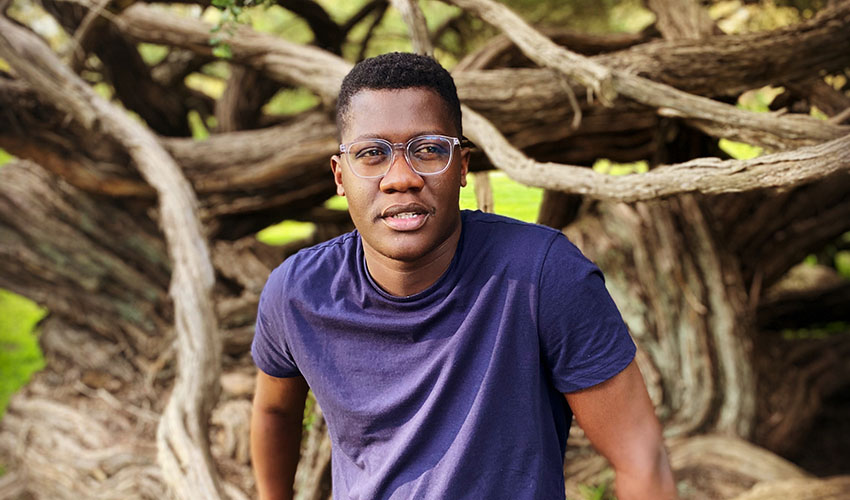Student organizes large soap donation for Kenyan village amid pandemic

Kenya native interns with Oakland nonprofit after helping villagers fight COVID-19
San Francisco State University student Wayne Metho’s zeal for helping people crystallized while working in his native Kenya as an assistant manager in the hotel industry. So when COVID-19 started spreading around the globe, he naturally turned his attention back home, gathering donations for its citizens and working with a health care nonprofit. “People are my passion,” he said. “This is just a small way I could make a difference.”
Metho came to the U.S. in 2016 to study at Berkeley City College and transferred to San Francisco State in 2018. Even after years of living in the U.S., he maintained close contact with former colleagues in Kenya. Occasionally they would band together for philanthropic projects, like buying books for children and providing food to families in need.
Just after shelter-in-place orders went into effect in the Bay Area, the International Relations major learned about Tiba Foundation, an Oakland-based nonprofit that partners with local health care organizations in western Kenya to provide volunteers, funding and strategic guidance. Metho began volunteering for the organization, where he learned of a crucial need in the community Tiba serves: soap.
Many villagers didn’t have access to soap, a shortage that could be a matter of life and death during the COVID-19 pandemic, explains Tiba Foundation Executive Director Diane Dodge. But because of the pandemic, transporting soap from the U.S. would be too hard and securing soap at that time in Kenya was tough. That was the challenge, and Metho knew just who he could turn to: his former colleagues. Pooling their money, together they bought and delivered 750 bars of soap to about 300 families through Matibabu Hospital, Tiba’s partner organization.
Tara Neuffer, operations manager of Tiba Foundation, explained that Metho’s group represents a cornerstone of community organizing in Kenya, referred to as a chama: an informal cooperative in which members pool their savings and often make investments together. “They’re mutual aid community fund groups where people pay monthly dues,” she said. “If you need a loan or there's a family tragedy, everyone in the group will democratically agree to lend you the money that you’ve been paying into.”
Inspired by Metho’s skills and drive, the organization offered him an internship after the project concluded. “We realized what an asset he was,” Neuffer added. “Not only is he intelligent and a great communicator, he just has that passion and will do anything it takes to complete his goals, which are always community-focused.” He’s currently helping develop videos and other visual promotional content and assisting with communications and fundraising.
Metho’s “passion for people” is an outlook that infuses most aspects of his life. When not working with Tiba, he’s a caregiver for people with disabilities in San Francisco. He takes his clients grocery shopping or to doctor’s appointments along with offering other kinds of support — work that’s essential and potentially dangerous during a pandemic. For Metho, however, it’s nothing out of the ordinary. “I just like doing nice things for people,” he said.